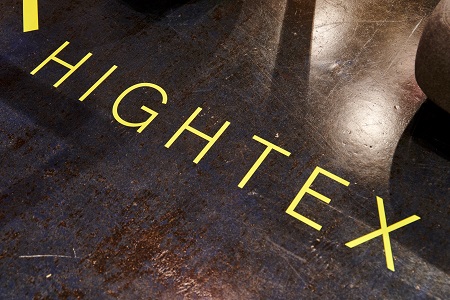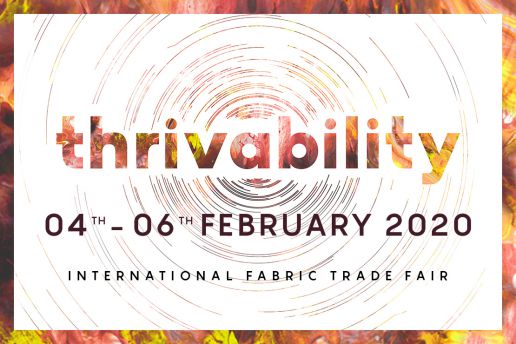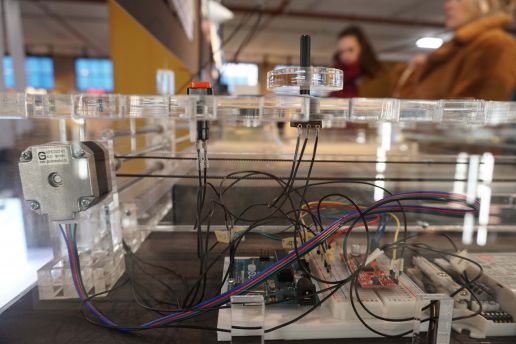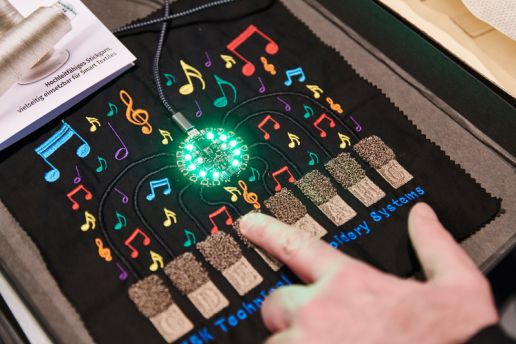Sustainable Innovations
MUNICH FABRIC START – A Paradigm Shift Towards Holistic Sustainability
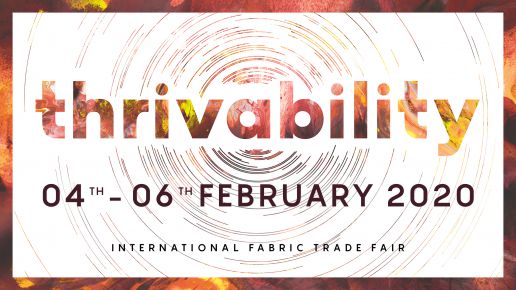
A new level of sustainability, digitalisation, transparency, a growing need for information and the desire to inspire
– that’s what the Spring.Summer 21 season stands for.
The awareness of a new ecology has become one of the strongest social movements. It challenges us to rethink, to take responsibility, to create transparency and to enter into an intensive dialogue.
The MUNICH FABRIC START with BLUEZONE, KEYHOUSE and the individual showcases presented by around 1,000 international suppliers of fabrics and additionals will introduce the Spring.Summer 21 season from 4 – 6 February in Munich. Approximately 20,000 trade visitors will have access to an extensive range of fabrics, additionals, designs, manufacturing services, supported by an informative and inspiring events programme.
The Spring.Summer 21 season is characterised by dynamism, waves and radiance – the guiding theme THRIVABILITY brings enthusiasm, creates excitement, let’s blossom and flourish. THRIVABILITY deconstructs our understanding of fashion and embeds a new, positive way of thinking: aesthetics and people see eye to eye; resources and nature are respected. This creates a new understanding of holistic sustainability and future-oriented entrepreneurial spirit. Spring.Summer 21 answers current market needs and reflects an evolved understanding of values. Knowledge, transparency, quality, responsibility and communication influence the current showcase of innovative product and processes on offer. THRIVABILITY combines the essence of this new era with a classic definition of trends and cultivates an inspiring and progressive direction for materials, fashion and design.


MUNICH FABRIC START HIGHLIGHTS
ASK THE EXPERT – Communication islands with THRIVABILITY experts.
Taking into account the focus on sustainability and innovation driven by THRIVABILITY, a new information concept will be integrated into the Trend Forum at the upcoming MUNICH FABRIC START. At various communication islands in the foyer of the MOC, industry experts will provide impulses and answers to current questions, from the origins of the material to exploring the diverse range of production processes and end garment recycling. Through direct discussions, you will gain valuable know-how, insights into topics and current solutions for both sustainable and innovative processes along the value chain:
CIRCULARITY | FIBERS & MATERIALS | MARKETING & COMMUNICATION | RECYCLING | SOCIAL RESPONSIBILITY
NEW ICON GUIDANCE SYSTEM
In addition, MUNICH FABRIC START has implemented a newly developed icon guidance system which in the spirit of transparency, identifies the sustainable and technical aspects of all the material highlights presented in the Trend Forums. In this way, visitors can establish these respective and previously hidden properties of textiles and ingredients at a single glance.
FABRICS
AWARENESS AS A DRIVER OF INNOVATION. Around 700 suppliers present their creative new developments across more than 1,000 collections – based on the latest technology innovations and the conscious and conservative use of resources. The fashionable combination of natural and innovative fibres is reflected in numerous new textile qualities including: luminous surfaces, wet gloss looks, soft glazes, colour gradients, transparent qualities, abstract patterns and relief elements. This season, MUNICH FABRIC START once again unites textile producers with a huge range of state-of-the-art fabrics, presenting not only essentials such as cotton, viscose, wool, elastane, lace and linen, but also novelties such as super-stretch silk, recycled polyester, Ecovero-Tencel linen, Naia and Cupro fibre blends or hemp textiles.
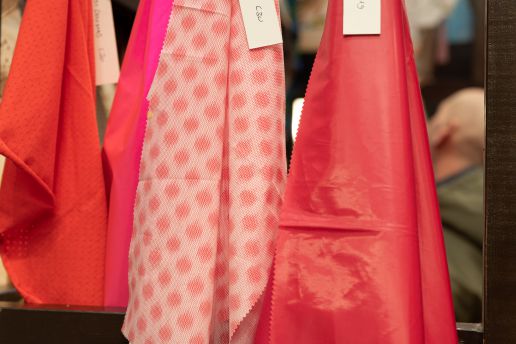
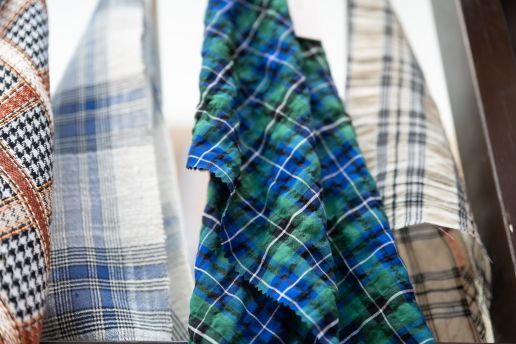
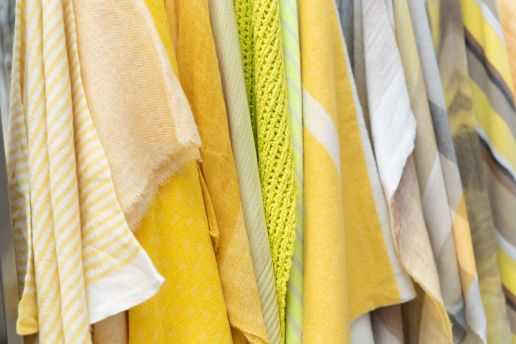
ADDITIONALS
TRIMS FOR FUTURE – this is the global motto which represents approximately 200 of the world’s leading international ADDITIONALS suppliers. Fashionable new developments revolve around iridescent surfaces, glowing yarns and electrifying colour applications. The focus is on recycled and sustainably produced products in natural colours. ITL Group will not only show its comprehensive range of products for the first time, but will also launch its C.A.R.E. Collection (Conscious, Affordable, Responsible, Eco-friendly labels) during the upcoming trade fair. Clic sums up these developments: “We have focused on realistic and organic articles that preserve nature both in form and texture”.
ReSOURCE
In a comprehensive forum, the ReSOURCE Area categorises and presents around 800 sustainably produced articles by exhibiting fabrics and additionals producers. “With our ground breaking DryIndigo® technology it is now possible to produce denim with 0% water consumption”, Tejidos Royo describes its latest milestone. Bornemann Etiketten sees the biggest challenge in balancing creativity, sustainability and efficiency, while Dutel focuses on timeless and durable top quality. Lanificio Roma pursues resource saving process solutions with the aim of wasting less and reusing production and consumption waste as new resources.
DESIGN STUDIOS
Natural colours based on sustainable dyeing techniques now determines the colour palettes of the inspiring designs at the internationally renowned, textile designers and trend offices in the DESIGN STUDIOS. The current change in the textile industry is leading to a revolution in the printing and dyeing industry and inspires a revival of natural dyes. Design Union and Primus Pattern also emphasize the simultaneous closeness to nature and diversity of textile prints for Spring.Summer 21.
SOURCING
Ready-made solutions are becoming more and more important and the interest in sourcing providers close to the market is also growing with a focus is on speed and a reduction in complexity. As globally established manufacturing companies in the SOURCING Area, numerous high-quality newcomers such as Easy Invest Solutions or Union 3 Fashion offer comprehensive insights into the entire textile production chain and its reliable procurement management. For Spring.Summer 21, Cascade Enterprises takes its inspiration from nature and returns to the basics in prints, fabrics and silhouettes. Sourcing specialist Fateks Kumas Tekstil offers and processes fabrics made from recycled PET bottles, also to conserve resources.
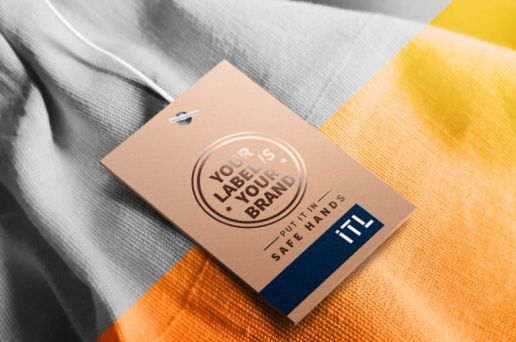
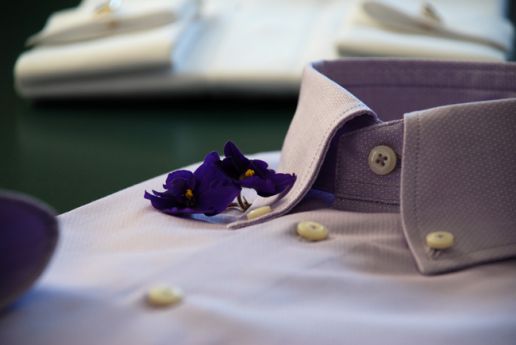
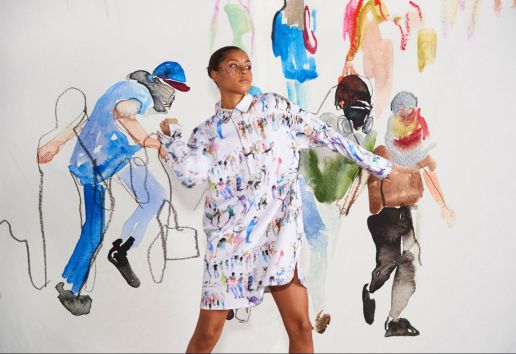
As the think tank for innovation, KEYHOUSE provides insights into future fabrics, new technologies, smart products & processes, sustainable innovations and alternative material resources, offering and inspiring pioneering concepts. For more information click here.
With over 100 major international brands, BLUEZONE has positioned itself as the initiator of an extraordinary, strong and innovative denim community. The answer to a conscious consumer approach and a growing interest in ready-made solutions that offer revolutionary products, state-of-the-art technological processes and complex functionalities. For more information click here.
KEYNOTES & SEMINARS
At the upcoming MUNICH FABRIC START, there will be a premium event programme featuring impressive panel discussions, polarising keynotes and trend seminars by international experts. The KEYHOUSE in Hall 5 will feature exciting lectures on the various subjects of innovation. The diverse events on offer in the BLUEZONE area of Hall 7 will provide an in-depth insight into the developments in the denim industry, while the ReSOURCE Forum in K3 in the MOC will offer an equally relevant programme on the topics of sustainability, certification and quality seals.
David Shah about „The 10 Design Pillars” – Tuesday, 4 Feb 2020, 10.30am – 12pm
The trend forecaster and publisher of Textile View will deliver the keynote “The 10 Design Pillars”. David Shah presents new perspectives on design influences from Slowbilisation to Hopepunk, from Biophilia to Datascapes.
Fashion Revolution – Tuesday, 4 Feb 2020, 12pm – 1pm
Ariane Piper gives an insight into Fashion Revolution – how the campaign will revolutionize the fashion industry. The viral campaign “Who made my clothes” will once again feature in the trend forums as an installation for transparency in the fashion industry.
Expert panel about „Future of the Textile Value Chain” – Tuesday, 4 Feb 2020, 2pm – 3.30pm
The panel discussion with expert participants on the subject of “Future of the Textile Value Chain” will be moderated by Jana Kern and Alex Vogt from KERN Consulting. The five international experts, including Prof. Dr. Michael Braungart, Hans H. Jung, David Shah, Jan Wilmking and Lauren Zahringer, will discuss the disruption and transformation through sustainability and networking in the textile value chain.
Rivet 50‘s 2020 Vision – Tuesday, 4 Feb 2020, 3pm – 4pm
What will the new decade bring for the denim industry and community? Rivet 50 will lead a discussion between some of the world’s most influential denim characters to discuss their predictions for business, technology and fashion.
Exclusive Trend Seminar by Li Edelkoort – Tuesday, 4 Feb 2020, 4pm – 6.30pm
Arguably the most famous trend forecaster of our time holds an exclusive trend seminar. In an impressive presentation, GREEN WAVE – the Fashion Trends for Spring.Summer 21, as GREEN BOOK – the Recreationwear Trends for Spring.Summer 21, as well as STILLNESS – a Full Colour Forecast for Autumn.Winter 21/22.
„Fashion Activism” Panel by Muchaneta Kapfunde – Wednesday, 5 Feb 2020, 11am – 12pm
FashNerd founder Muchaneta Kapfunde brings together the experts Kresse Wesling, Styliani Parascha, Marta Waydel and Marina Toeters as part of the panel discussion “Fashion Activism: Creating the Fashion of the Future.”
Hessnatur Stiftung about „The way to the green button“ – Wednesday, 05 Feb 2020, 11am – 12pm
Rolf Heimann, CEO of the Hessnatur Foundation, Institute for Applied Sustainability, explores in a lecture the question “How do I prepare my company for certification?”.
„How automation will change the fashion industry” – Wednesday, 5 Feb 2020, 2pm – 3pm
The five experts in technology, David Schmelzeisen, Ralf Schneider, Dr. Thomas Fischer, Jon Zornow and Sabine Kühnl will discuss “Don’t be afraid of robots – how automation will change the fashion industry” in a panel discussion. Automation, digitalisation and localisation are the trends that are reshaping the global fashion market. Is the fashion industry ready to adapt to new standards? What consequences does this have for the current procurement structure, also in terms of social responsibility?
“The data behind today’s winning marketing strategies” – Wednesday, 5 Feb 2020, 5pm – 6pm
Gina Gulberti, VP Digital Marketing at Launchmetrics, explains in her keynote “The data behind today’s winning marketing strategies”.
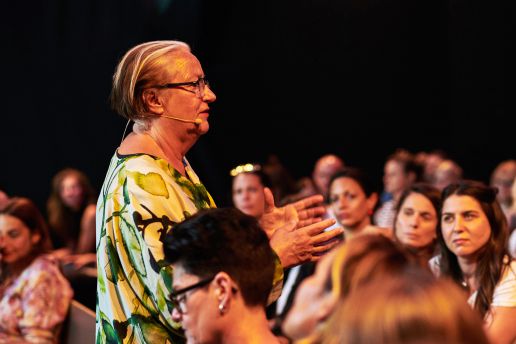
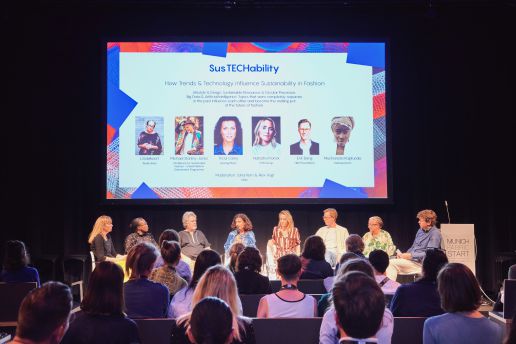
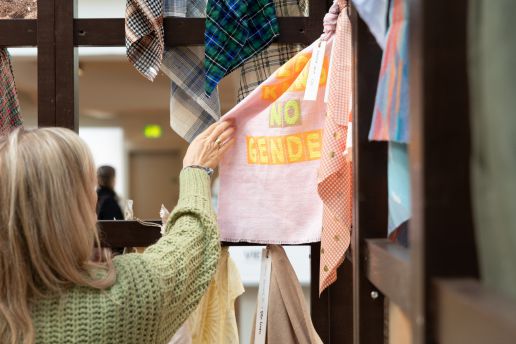
All dates and the complete events programme can be found here.
MUNICH FABRIC START & KEYHOUSE & SOURCING
04 February 2020 | 9.30am – 6.30pm
05 February 2020 | 9.30am – 6.30pm
06 February 2020 | 9.30am – 4.00pm
BLUEZONE
04 February 2020 | 9.30am – 6.30pm
05 February 2020 | 9.30am – 6.30pm
Interview with Simon Angel, Curator of SUSTAINABLE INNOVATIONS
Simon Angel has been the curator of the Sustainable Innovations Area in the KEYHOUSE since 2018. For the Munich Fabric Start fair, he is looking for exciting young designers, extraordinary innovations and new perspectives from the textile world. Register now to attend Sustainable Innovations at KEYHOUSE.
Simon, what Sustainable Innovations can we look forward to this season?
Each season, we try to present textile tendencies and new materials to inspire and broaden the context, techniques, meaning and value of textile related topics. Our goal is to show a glimpse of a possible future, so the industry and its professionals can use it to get to the next level. It is a constant dialogue. We are a community, growing and connecting together, sharing visions and ideas – it’s an inspiring atmosphere.
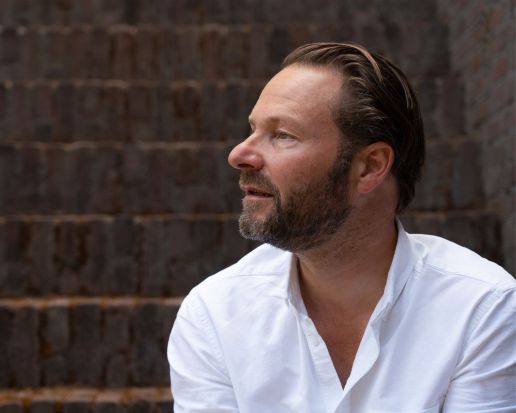
This edition of Munich Fabric Start’s Sustainable Innovations is a prime example to this approach – not only in respect to the responsibility held as a textile fair but also from the attitude and perspectives of the designer’s present. You see their visions in sound-created and laser print work. You feel their ideas in the provocative perspective that plastic is part of our natural landscape. And in the concept that ditching seams can lead to new manufacturing techniques and design approaches. But also, in revaluing materials like sisal and paper and the use of core natural elements like milk, starch and salt-crystals. I am positive that these projects will start a dialogue we can all learn from.
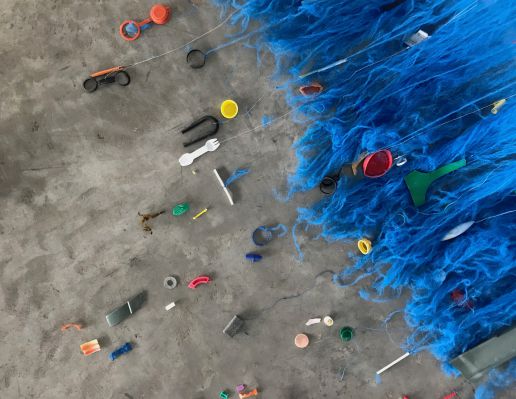
Again and again, the fear of the future, the consequences of environmental pollution and climate change emerge in the curated works. Challenge or opportunity, what do you think?
Your question shows that we are all still at very different stages in the process. Some people are aware and concerned about the transformations our environment is facing. Some are becoming aware of the changes and starting to value what still is. Others are reacting with action, ready to change the game. Specifically that we all have different point of views – with even more concerns to consider. So, there is not one dialogue, there are hundreds. There is not one solution, there is – as I refer to it – a chain of change happening on all levels. Therefore, I there is no “or” in between, instead it is an “and”: We have challenges AND opportunities. All of the designers offer opportunities through different approaches and create change, as challenging as it is.
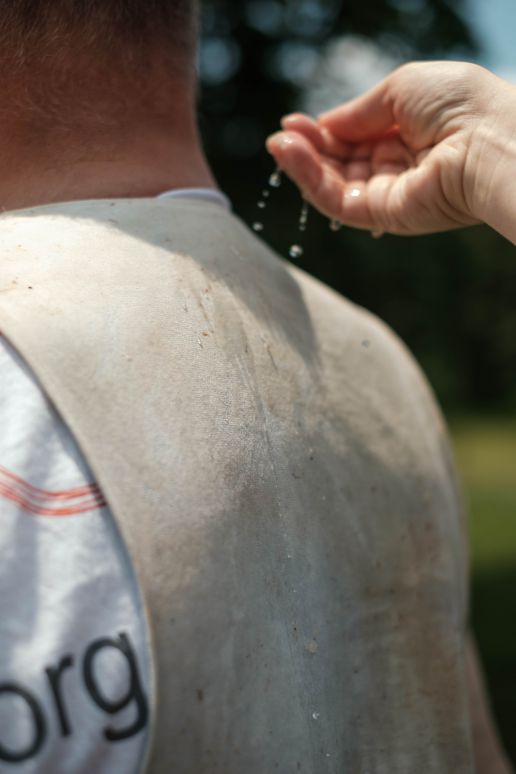
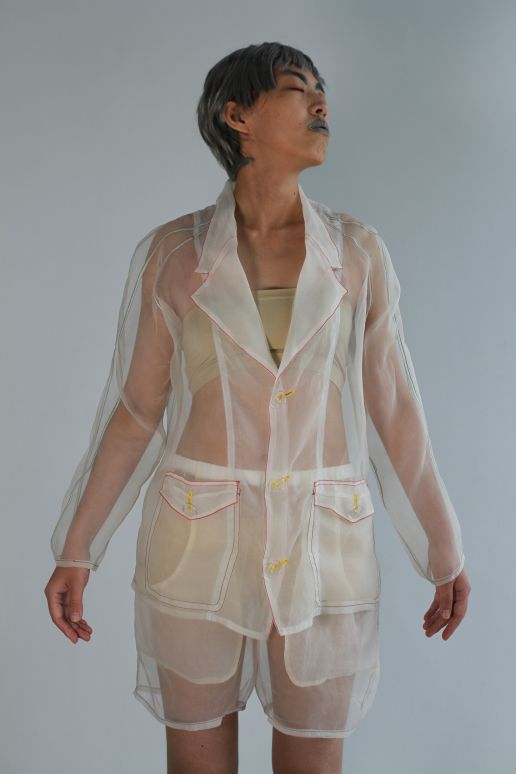
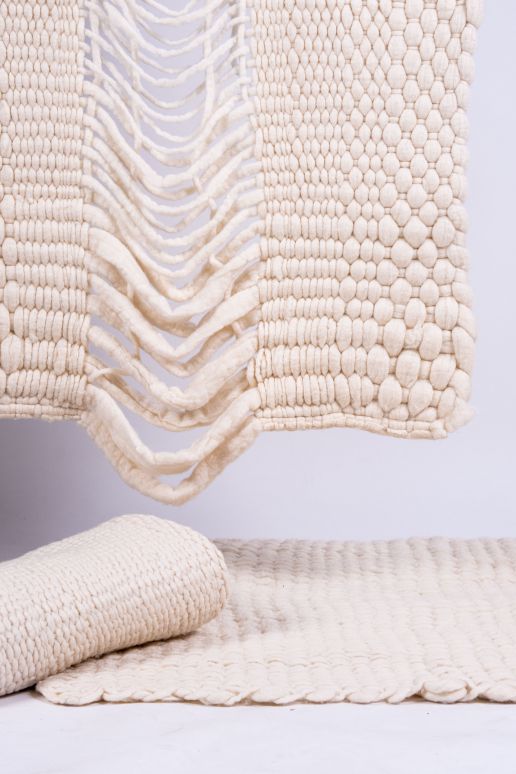
The use of potato starch, old printing methods and traditional Korean craftsmanship – one could almost say that “back to the roots” is the motto of the upcoming season. Posing the question, where does this development come from?
As designers are digging deeper, they often rediscover historic production processes and design principles, that make sense in the now as well. “We learn from history that we never learn from history”, a quote of a dear friend of mine. Now I learn that there are two meanings to this. The project of Caterina Tiolo is a good example for how changing the order of an old process can lead to totally new approaches – design and material wise. The development of redefining traditional processes and ingredients is really exciting. Or look at “Consumption of heritage” by Lee Sun: She uses traditional crafts and simple materials like paper in a modern fashion context and in that way values her heritage. So yes, if “back to the roots” to you means “revitalise tradition and values”, it is certainly a dominant development.
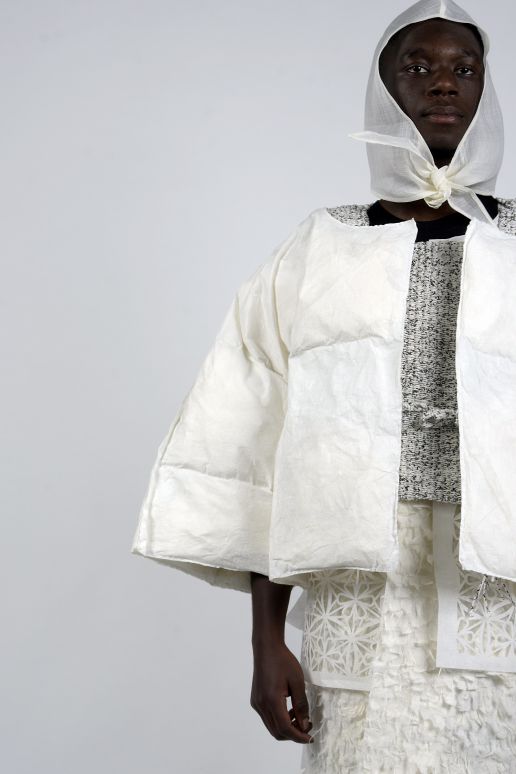
You are curating the Sustainable Innovations for the fifth time this season. What has changed?
From my perspective, it is not working on changes – we are working on this as a journey. I see many strong developments and tendencies and they are driven by dedicated professionals. Not only business and money-driven but instead also by values. I see that the industry is working on becoming a better version of itself. Feeling a glimpse of shared responsibility between designers, manufacturers, press and media, I am very optimistic. In the end it is all about the perfect couple: quality and consciousness.
2020 – a new decade begins. Looking to the future: how do you think the interplay of sustainability and textiles will develop?
As optimistic as I may sound – the more research I do in the field of textiles and fashion, it all comes down to our individual responsibilities: our behaviours as a human, existing as a consumer in this economic system. The causality of change has two central elements to start with: demand and supply. We have to stop putting ‘the good’ into a colonial and capitalistic context as from the early start of textile history to the fashion world of the now: The more we are aware and the more we share, together we can make this a great journey. Let’s take this chance and restore the enthusiasm to this economic world. Let’s thrive!
Visit Sustainable Innovations at KEYHOUSE on February 4-6 2020 in Munich.
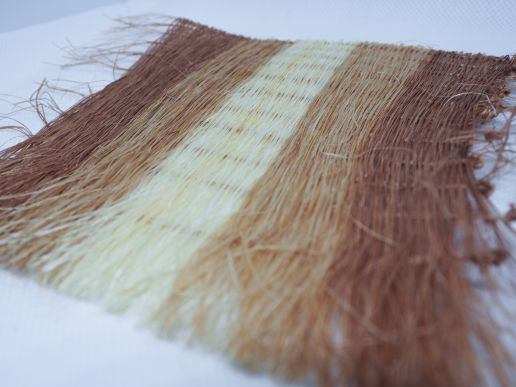
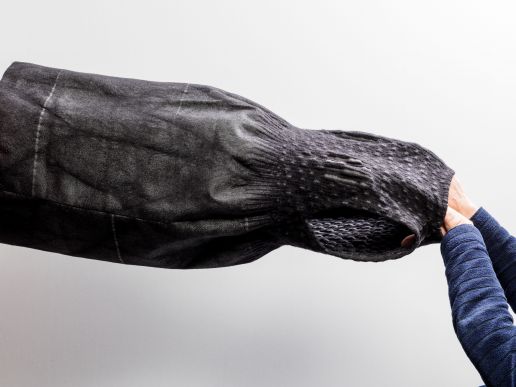
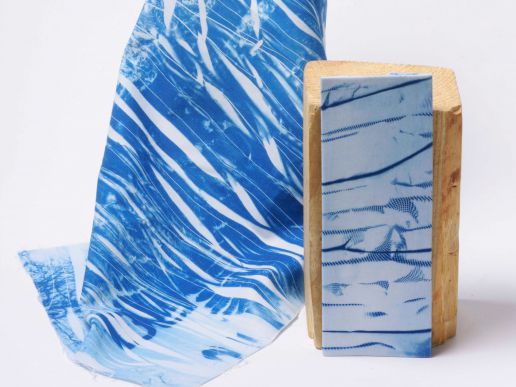
SUSTAINABLE INNOVATIONS: Interview with Simon Angel
You’re curating the Sustainable Innovations forum at Munich Fabric Start for the fourth time. Where are you looking for these new ideas and concepts?
I follow the heartbeat of current and future matters and perspectives. I am inspired by people and products which question the quality and essence of life. This leads me to the roots of the design processes, to the inner core of the industry, research institutes and universities. Textile innovations can be found in all different kinds of areas from fashion to health care, automotive as well as many other sectors. The art of thinking outside and inside the box at the same time plays a central role to find new innovations.
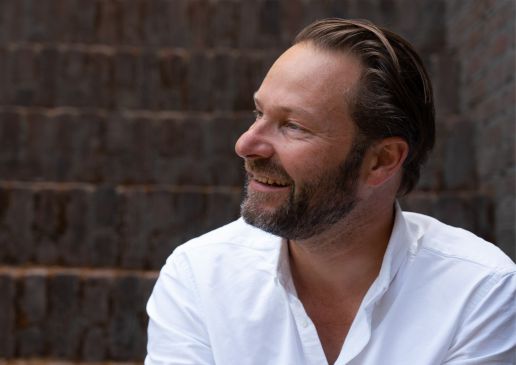
What do the showcased projects have in common?
There are two aspects which unite the Sustainable Innovations: poetry and purpose – and we most definitely need both! We need people who respond with poetry to inspire and open up new ideas and we need the hardcore problem solvers. With this edition we show several projects that provide concrete examples of what the successful interplay between poetry and problem solving can look like. Be it in 3D printing solutions or in human capital or in terms of circular solutions. Sustainable Innovations showcases great examples of what re-thinking and re-acting can lead to.
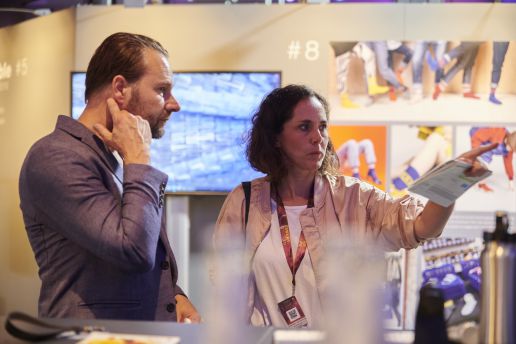
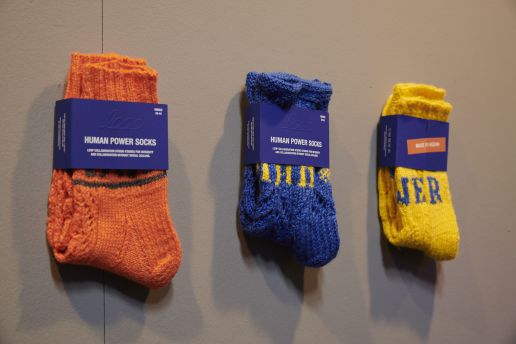
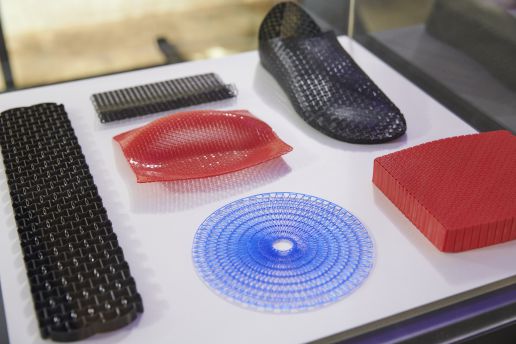
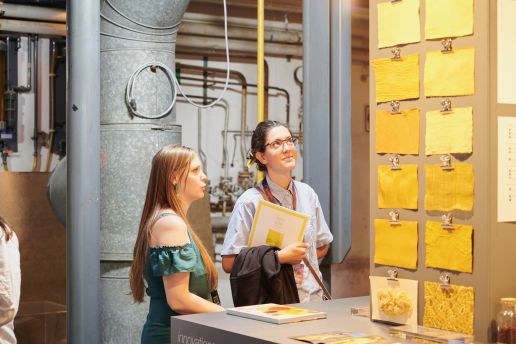
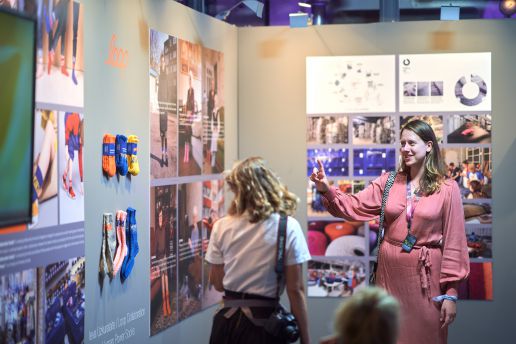
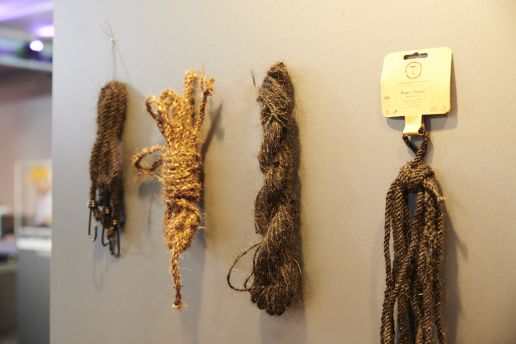
With regards to the exhibits, do you see any major trends?
I see the need for and can almost hear a desperate cry for contact. People want to develop a deeper relationship with each other but also with products and materials. The overload of information and the limitless possibilities to connect brings us to the essence of connection: purpose. The designers question their activities, relationships, products, services and business models in order to establish connections that make sense. Connections which will enable and explore new ideas, materials and directions. The power to create a new kind of connection is the next innovation: meaningful people, purposeful like poetry.

What can the industry learn from Sustainable Innovations?
Perhaps it’s not so much about learning something, but more about opening up and establishing a dialogue. The designer has their own view of the market as well as human needs and the industry has its own view and perspectives as well – but these two perspectives are not always sufficiently aligned. Therefore collaborations are key: BEyondAWARE!
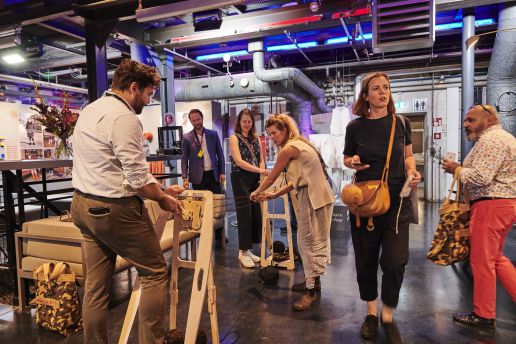
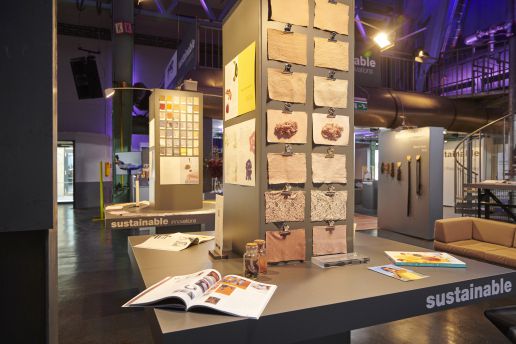
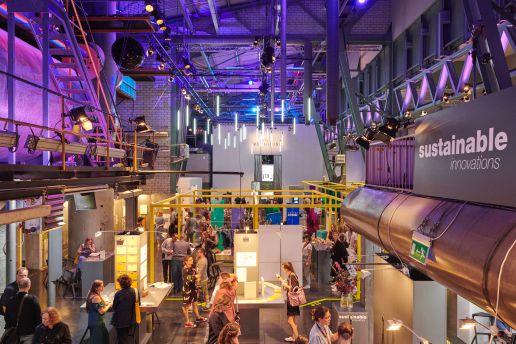
KEYHOUSE - From Poetry to Digitalisation
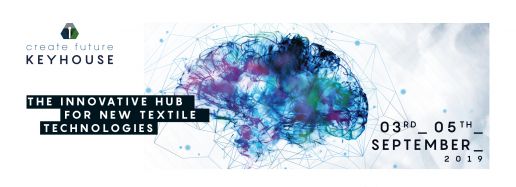
As a think tank for fashion tech, smart textiles, sustainability and innovation, KEYHOUSE offers concrete approaches for a future-oriented textile and fashion industry. It spans the spectrum from technology to sustainability, from digitalisation to new material resources and manufacturing processes. The mindset of ‘democratic’ research projects, inspiring collaborations and networks as well as high-tech product and process development reflects the pulsating mood of KEYHOUSE at MUNICH FABRIC START.
Those attending include:
Smart Textiles Pop-Up Lab by Holst Centre x Pauline van Dongen featuring interactive workshops on printing electronics on textiles. As a Dutch research hub, the Holst Centre specialises in the development of printed electronics. Unlike conventional electronics, these circuits are thin, lightweight, flexible and even stretchable. They make it possible to make all kinds of products and materials interactive. The material properties of these printed electronics make them particularly suitable for integration in textiles.
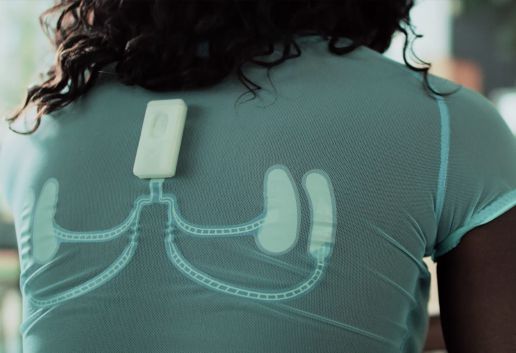
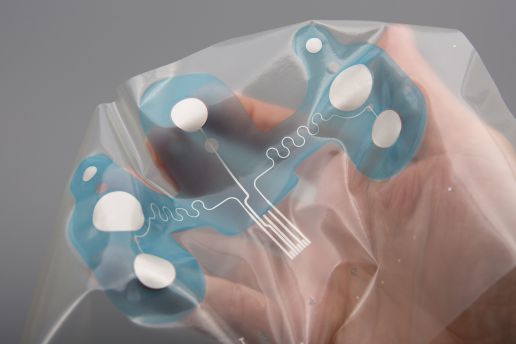
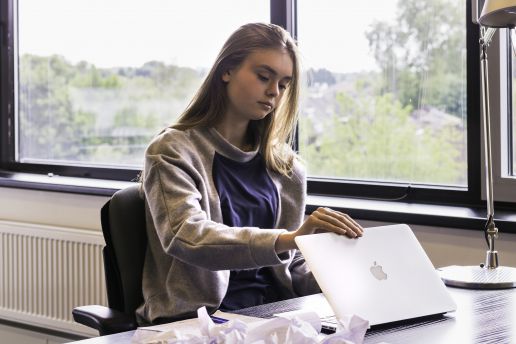
KNITCLOUD by N.I.O. combines sustainability and digitalisation with the launch of a personalised 3D knitwear-on-demand brand at the Keyhouse, which as a smart network offers a future-oriented, sustainable answer to today’s overconsumption of clothing. What began with initial tests by start-up company The Girl and The Machine has now developed into a market-ready brand for custom-made 3D knitwear on demand that will be scalable in the future. Knitcloud by N.I.O. (New Industrial Order) will allow brands, designers and web shops to connect virtual designs, body measurement apps, virtual fitting solutions and a digital tailor system (DTS) with a subsequent on-demand ordering system (ONOS). In future, this smart concept will make it possible to produce customised and personalised clothing – as the world’s first open ecosystem for 3D knitwear on demand.
KPMG, one of the leading auditing and consulting firms in Germany, will deliver a unique fusion of business, technology and fashion to the KEYHOUSE this season together with the global IT group Microsoft. This partnership is dedicated to business and technology systems for the fashion industry. The launch of disruptive technologies such as HoloLens, a new POS system, better process management tools and integrated social media engagement will satisfy the modern, demanding customer of the future, ensuring a new era for fashion retailing.

DIGITAL FABRIC LAB
As a joint showcase initiated by MUNICH FABRIC START, the leading specialist firms Assyst, Caddon, Vizoo, Triple Tree Solutions and the University of Dresden have joined forces to present a new type of digitalisation process for fabrics in a comprehensible and practical way through simulated digitalisation stations. The DIGITAL FABRIC LAB demonstrates a new form of analysis process that overhauls production and accelerates it many times over. Digital material parameters such as elasticity, flexibility, tension and rigidity are determined for the realistic use of textiles in product simulation. For these physical measurements, surfaces, colours and textures must be recorded and collated in a technologically presentable way.
‘Digitalisation 4.0 is certainly one of the key issues when it comes to future process controls. One of the essential building blocks within these major technical changes will be the digitalisation of fabrics and additionals. For each fabric and each button there will be a digital ‘twin’.’
Sebastian Klinder, Managing Director MUNICH FABRIC START
SUSTAINABLE INNOVATIONS
Creating alternative materials from unusual resources, instructions for a new approach to textiles and clothing and the rediscovery of traditional crafts – the SUSTAINABLE INNOVATIONS Forum will showcase it all, discover:
-
-
- PHERES & AUXTEX by Eric Esser, with the creation of CAD files thanks to the 3D printing process FDM (Fused Deposition Modelling).
- Atlas of Sustainable Colour(s) by JULIA KALETA as a sustainable colour compass.
- LOOP.A.LIFE with a circular approach to extending the life cycle of textiles.
- LOOP COLLABORATION STUDIO as an integrative movement of socially oriented resource exploitation.
- WORN TO WEAR by Lena Winterink interprets the conscious handling of clothing through the use of copper wire in the yarn.
- SWART LAEKEN by Lotte Gulpers present high-quality items made of premium wool as a sustainable raw material.
- DYELUX by Nikolett Madai uses by-products from the food industry to produce dyestuffs for textiles.
- KNOT by Sanne Visser looks at horn as a raw material from a new angle and creates yarns, ropes and nets from hair.
-
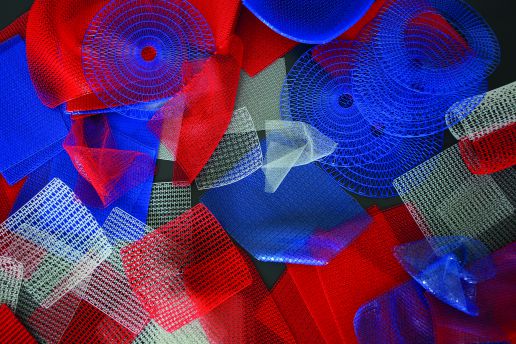
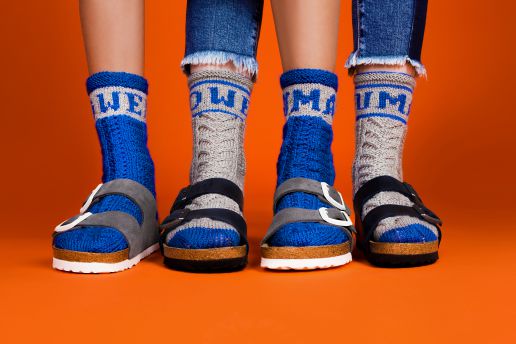
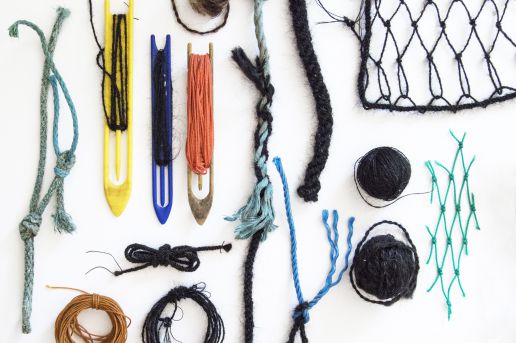
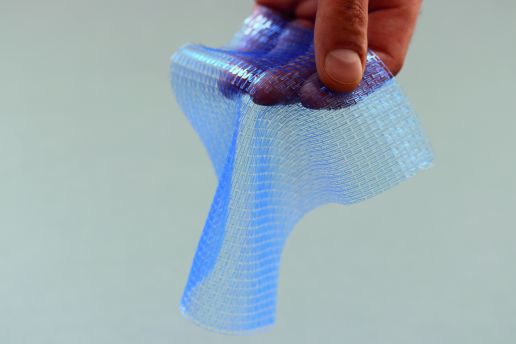
With these selected showcases at KEYHOUSE we give impulses and solutions for a future-oriented use of materials and marketable production processes. This offers great potential for synergies and collaborations, which – used at the right interface and linked together – will have a lasting impact on industry. This season we have once again succeeded in mapping out a broad range of relevant topics for the future.’
Claudia Mynott, Communications Director MUNICH FABRIC START
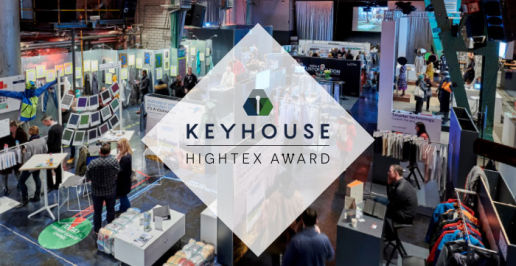
HIGHTEX AWARD
The HighTex Award will be presented for the 7th time. The MUNICH FABRIC START Innovation Prize honours outstanding initiatives and commitment in the fields of intelligent process solutions, innovative highlights, biotechnology, digitalisation and sustainable innovations.
‘We present the HighTex Award in recognition of outstanding achievements and, at the same time, as a motivation for innovative research projects and thus as a sustainable contribution to a clean future and conscious use of resources.’
Frank Junker, Creative Director, MUNICH FABRIC START

Candidates are assessed according to the following categories: High-Tex, Technology, Smart Fibres, Sustainability, Resource Efficiency, Finishing, Functionality, Health and Circularity Process. An essential principle here is process realisation and marketability. The award winning products and other innovations in the KEYHOUSE HighTex Award Forum will be on display for the entire duration of the trade fair. Supplemented by detailed information on the respective exhibited products including contact information.
SIDE EVENTS
Furthermore, KEYHOUSE offers a comprehensive and exclusive programme of side events throughout the duration of the trade fair. In addition to trend seminars, these include top-class workshops, talks and round table discussions.
The entire lecture programme can be found at >> events.munichfabricstart.com
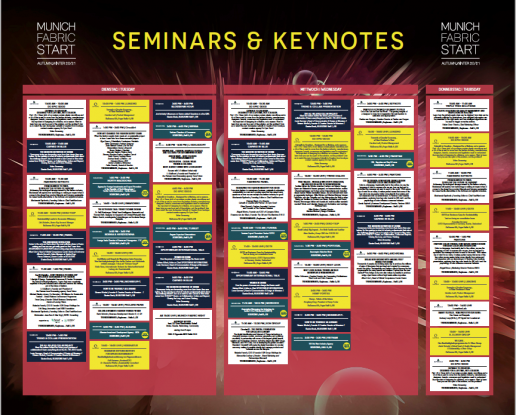
Sustainability as an Innovation Driver – these were the most important issues at KEYHOUSE
Besides the all-encompassing theme of sustainability, technology and digitalisation were the predominant subjects for discussion at the KEYHOUSE, the Innovation Think Tank of MUNICH FABRIC START. There was a great need to talk, both at the stands and in the discussions and round tables with high-calibre panelists at the KEYHOUSE FORUMS.
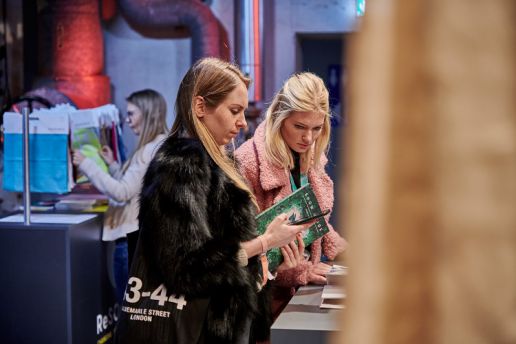
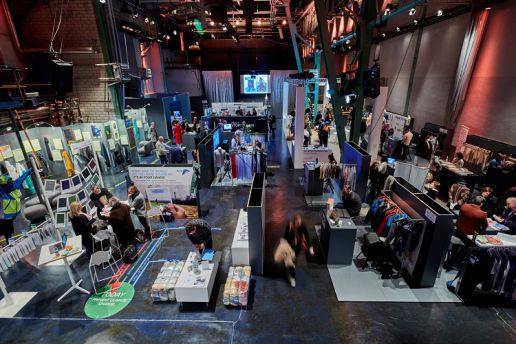
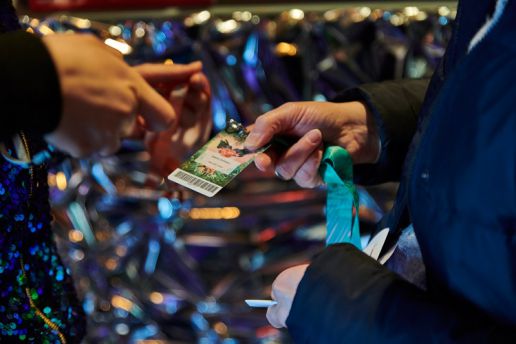
The keynote speech on “The Circular Economy Journey of Sustainable Luxury Pioneers” of Kresse Wesling, Co-Founder und Director of Elvis & Kresse made it clear that sustainability has long become more than a niche topic for environmentalists. She showed that today’s luxury sector sees an increasing demand for sustainable fashion and accessories. On a cross sectoral level David Shah, owner of VIEW talked about “Why Performance, Comfort and Sportswear Fashion will dominate Apparel for the Foreseeable Future”.
Another highlight certainly was the contribution of Li Edelkoort – one of today’s most important trend forecasters. The visionary presented trend directions for Spring.Summer 2020 and unpublished content for the Colour Forecast for Autumn.Winter 2020/21 in an exclusive seminar.
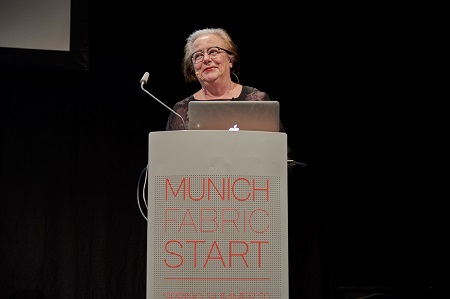
With the help of digitalisation but also with innovative supply chain partners more sustainable results can be achieved in the long run. This has been proven by the Planet REhab collaboration of designer Juan Carlos Gordillo who created a collection made of TENCEL™ und TENCEL™ x REFIBRA™ fibres from Tejidos Royo. The fabrics were dyed with Recycrom-technology by Officina+39 und then equipped with a finish by Tonello. The result, which could be inspected at KEYHOUSE, demonstrated impressively how the sustainability aspect itself acts as an innovation driver. A further example was given by Swedish company We aRe SpinDye® who have revolutionized the dyeing process of polyester for the textile industry. They were the first to succeed in developing a fully certified dyeing process including all production stages, which sets new standards with respect to clean colours and environmental engagement.
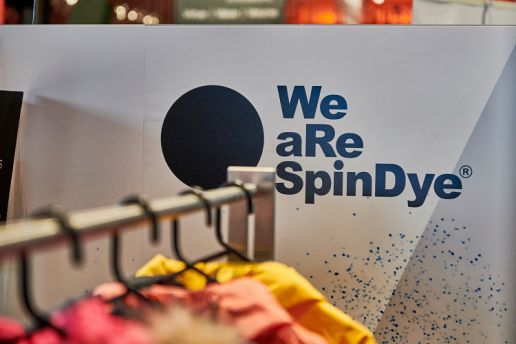
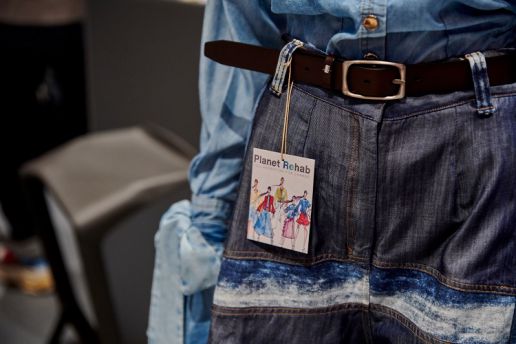
Beyond this, the exhibition format SUSTAINABLE INNOVATIONS at KEYHOUSE showcased the visionary spectrum of the latest material innovations and future orientated sourcing concepts. Here the innovation aspect is on sustainability in particular. For the current season, Diane Scherer presented her project Interwoven, in which the root structure of plants is being transformed into fabrics.
Another example of botany is given by Dutch designer Nienke Hoogvliets. She demonstrated, how algae blooms can be utilized to attain textile colours and environmentally friendly yarns.
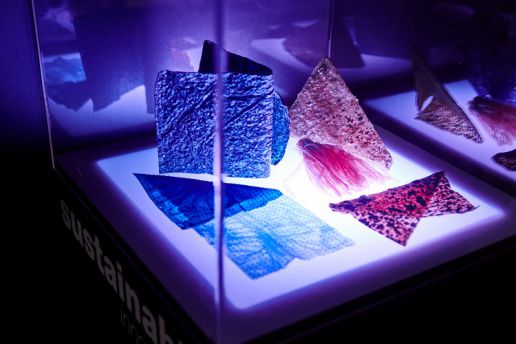
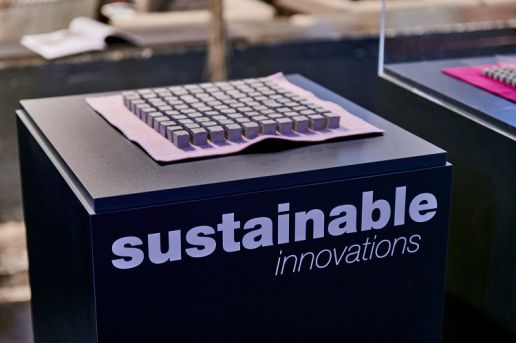
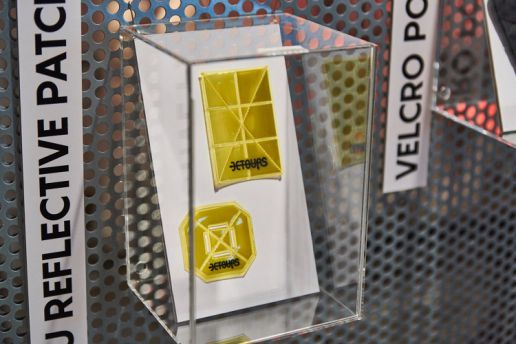
Another focal theme at KEYHOUSE was the presentation of the Hightex Award. The winner of this year’s innovation award was Becker Tuche, Aachen. The company received the award for a new product development combining wool and Cordura with spandex – super lightweight and highly functional. The runner up was Soorty Enterprises with an extremely lightweight, recycled and water-repellent denim in a Tencel/nylon blend and in third place came Mectex by Manifatture Italiane Scudieri. The Italians are known for their high-tech developments in the sports and outerwear segment and come up with new ways and solutions for fusing comfort and function.
